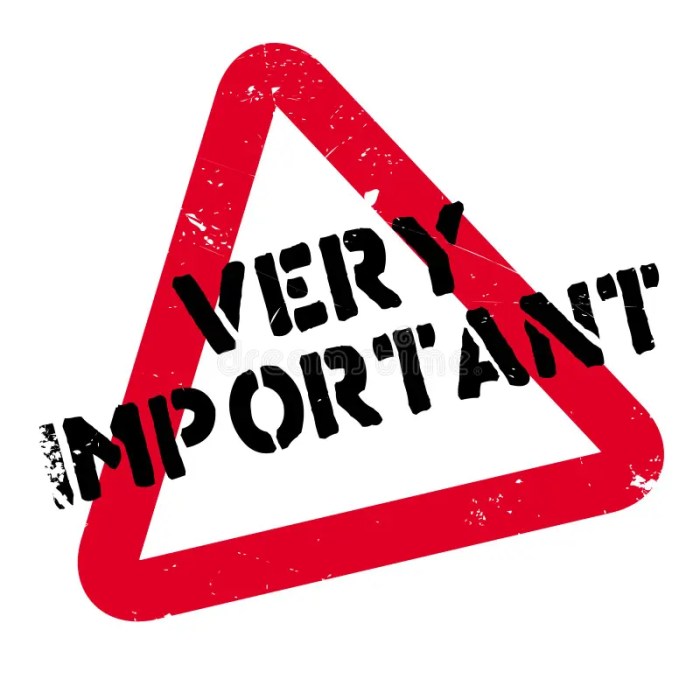Important boundaries empaths should set for themselves in a relationship are crucial for self-preservation. Empaths often absorb the emotions of others, leading to burnout and exhaustion. This article dives into the unique needs of empaths and explores how to establish healthy boundaries in relationships, from emotional support to time management, ensuring a fulfilling and sustainable connection.
Understanding and setting boundaries is key to protecting your emotional well-being. This article provides practical strategies for empaths to identify their needs, communicate those needs effectively, and navigate difficult conversations while maintaining empathy and respect. It explores various types of boundaries and offers specific examples to illustrate the concept.
Defining Empathetic Needs

Empaths experience the world with a heightened sensitivity, absorbing the emotions and energy of those around them. This profound connection can be incredibly enriching, fostering deep understanding and compassion. However, it also presents unique emotional and mental needs that often differ significantly from those of non-empathetic individuals. Recognizing and addressing these needs is crucial for empaths to thrive in relationships and maintain their well-being.Understanding these needs is not about categorizing or defining empaths as “better” or “worse” than others.
Instead, it’s about acknowledging the distinct challenges and advantages that come with heightened sensitivity. This allows for a more supportive and empathetic environment for both empaths and their partners, facilitating stronger connections and mutual respect.
Emotional Needs of Empaths
Empaths often require significant emotional regulation strategies due to their heightened emotional absorption. Their capacity to feel others’ emotions deeply can lead to emotional overload, fatigue, and even physical symptoms if not managed effectively. This emotional absorption can manifest as feeling overwhelmed by the emotions of others, leading to stress, anxiety, or burnout. Strategies like setting boundaries, practicing self-care, and engaging in activities that ground them in their own emotions are vital for their well-being.
Mental Needs of Empaths
Empaths often require mental space and solitude to process the emotional input they absorb. Mental clarity and focused introspection are essential for them to recharge and avoid feeling overwhelmed. This can involve activities such as meditation, journaling, or simply spending time alone to collect their thoughts and feelings. They might need more time to themselves for processing and reflecting on the emotional energy they’ve taken in, a need often overlooked in typical relationships.
Differences in Needs Compared to Non-Empaths
The needs of empaths differ from those of non-empaths in several key areas. Non-empathetic individuals may not fully grasp the emotional toll empaths experience from absorbing the emotions of others. This can lead to misunderstandings and misinterpretations in relationships. Non-empaths may not readily recognize the need for solitude or emotional regulation strategies that are crucial for empaths.
Impact of Emotional Absorption
Emotional absorption, a defining characteristic of empaths, can significantly impact their well-being. Over time, this constant intake of others’ emotions can lead to exhaustion, stress, and even physical symptoms. Chronic emotional absorption can drain empaths of their own emotional energy, leaving them feeling depleted and unable to engage fully in their own lives. This constant energy drain can impact their physical health and mental well-being, requiring proactive measures to maintain their own emotional and mental reserves.
Common Pitfalls in Relationships
Empaths often encounter specific pitfalls in relationships due to their sensitivity. They might struggle to set boundaries, fearing conflict or rejection, leading to them absorbing more emotional energy than they can handle. They might also find themselves over-compromising to avoid upsetting others, leading to resentment and a feeling of being taken advantage of.
Contrasting Needs in Relationships
| Characteristic | Empath | Non-Empath |
|---|---|---|
| Emotional Absorption | High; experiences the emotions of others intensely | Low; experiences emotions more directly and personally |
| Emotional Regulation | Requires strategies like mindfulness, boundaries, and self-care | May not require as much formal emotional regulation |
| Mental Space | Needs solitude for processing and recharging | May not require the same level of solitude |
| Communication Style | Often highly sensitive and empathetic; can easily pick up on subtle cues | May communicate more directly and less emotionally attuned |
| Boundary Setting | Can struggle with setting boundaries, often prioritizes others’ needs | May be more assertive in setting boundaries |
Identifying Healthy Boundaries
Healthy boundaries in relationships are essential for maintaining emotional well-being and fostering a balanced and respectful connection. They define acceptable limits of behavior, communication, and expectations within the relationship, ensuring both individuals feel safe, respected, and valued. Understanding and establishing healthy boundaries is not about being uncaring or rejecting others, but rather about protecting your own emotional, mental, and physical needs while promoting mutual respect and growth.Healthy boundaries are crucial for empaths, who often absorb the emotions and needs of others.
These boundaries provide a protective shield against emotional overload, ensuring they can maintain their own well-being without sacrificing their own needs. Without clear boundaries, empaths can find themselves constantly drained and unable to function optimally.
Defining Healthy Boundaries
Healthy boundaries are clearly defined limits that protect your emotional, mental, and physical well-being. They are not rigid rules, but rather guidelines that allow you to manage expectations and maintain your sense of self. These boundaries are flexible and can adapt as the relationship evolves.
Examples of Healthy Boundaries for Empaths
- Setting limits on emotional absorption: Empaths often absorb the emotional burdens of others. A healthy boundary is to acknowledge their own feelings and needs, while still offering support without taking on the full responsibility of another’s emotional state.
- Managing time commitments: Empaths may feel compelled to help others. Healthy boundaries involve prioritizing personal needs and setting realistic limits on time commitments.
- Refusing to take on other’s responsibilities: Empaths can sometimes feel obligated to take on responsibilities that aren’t theirs. A healthy boundary is to clearly define and communicate personal limitations.
- Establishing limits on contact frequency: Empaths might feel pressured to maintain constant contact. Setting healthy boundaries involves defining reasonable communication frequencies to avoid emotional depletion.
Methods for Identifying and Establishing Boundaries
Identifying personal boundaries involves self-reflection and understanding your values, needs, and limits. Start by examining past experiences and identifying patterns where you felt overwhelmed or taken advantage of. Actively listen to your body’s cues and pay attention to emotional signals that indicate you are being pushed beyond your limits. Honest introspection helps clarify what you need and don’t need in a relationship.
Communicating Boundaries Effectively
Effective boundary communication is about expressing your needs clearly and respectfully, without blaming or accusing. Frame your boundaries as statements of your needs, rather than accusations about the other person’s behavior. Use “I” statements to focus on your experience and feelings. For example, instead of saying “You always make me feel responsible for your problems,” say “I need to protect my emotional energy, so I can’t always be available to help with your problems.”
Table of Boundary Types
| Boundary Type | Description | Example |
|---|---|---|
| Emotional | Limits on how much emotional input you’re willing to absorb from others. | “I need space when I’m feeling overwhelmed.” |
| Physical | Limits on physical contact or closeness. | “I’m not comfortable with physical affection in public.” |
| Mental | Limits on how much mental input you’re willing to absorb or provide. | “I need to protect my mental energy and avoid excessive information intake.” |
Setting Boundaries for Emotional Well-being: Important Boundaries Empaths Should Set For Themselves In A Relationship

Protecting your emotional energy is crucial for empaths in relationships. Constantly absorbing the emotions of others can lead to burnout and exhaustion. Learning to set healthy boundaries around emotional support and vulnerability is key to maintaining your own well-being while still being supportive to those around you. This involves recognizing emotional overload, establishing limits on absorbing others’ negativity, and safeguarding your own emotional space.Empaths often find themselves naturally drawn to supporting others’ emotional needs.
However, this inherent tendency can easily become overwhelming if not managed effectively. Developing strategies for recognizing and managing emotional overload is vital for preserving your own emotional health. By implementing clear boundaries, you can maintain a healthy balance between caring for others and nurturing your own well-being.
Recognizing and Managing Emotional Overload
Empaths frequently experience emotional overload, where the constant intake of others’ emotions becomes overwhelming. Recognizing the signs of this overload is the first step in effectively managing it. Common indicators include feeling drained, experiencing physical symptoms like headaches or fatigue, and feeling emotionally numb or detached.
Establishing Boundaries Around Emotional Support and Vulnerability
Setting boundaries around emotional support involves understanding your capacity to offer support. It’s about recognizing that you can’t always be the primary source of emotional support for everyone around you. It also includes being mindful of your own vulnerability and setting limits on how much you share with others. This doesn’t mean you’re uncaring; rather, it’s about prioritizing your emotional well-being.
Empaths should understand that being vulnerable is a two-way street. Just as they allow others to share their vulnerability, they also need to be vulnerable in a safe, controlled way.
Setting Limits on Absorbing Others’ Negative Emotions
Learning to manage and limit the absorption of others’ negative emotions is essential. This involves recognizing triggers, developing coping mechanisms, and setting clear boundaries. It’s not about rejecting others’ feelings, but about protecting your emotional space. Healthy boundaries allow you to acknowledge and validate the feelings of others without absorbing their negativity.
Strategies for Setting Limits on Absorbing Others’ Negative Emotions
- Recognize your triggers: Identifying specific situations, people, or topics that trigger emotional overload is crucial. This awareness allows you to proactively anticipate potential stressors.
- Develop coping mechanisms: Practicing relaxation techniques like deep breathing, meditation, or mindfulness can help manage emotional reactivity when encountering triggers. A healthy coping mechanism might be taking a walk in nature, listening to calming music, or spending time alone.
- Establish clear boundaries: Communicate your limits to others in a direct, yet compassionate manner. This could involve setting limits on the amount of time you spend listening to someone’s problems, or clearly communicating that you are not able to support them through a specific situation.
- Prioritize self-care: Actively engaging in activities that nurture your emotional well-being is crucial. This might involve spending time in nature, engaging in hobbies, or practicing self-compassion.
Scenario-Based Boundary Responses
| Scenario | Empath’s Boundary Response |
|---|---|
| A friend constantly vents about work issues, becoming increasingly negative. | “I’m happy to listen, but I need to set a time limit. Let’s talk for 15 minutes, and we can schedule another time to discuss further if needed.” |
| A family member expresses intense anger and frustration. | “I hear your frustration, but I’m not comfortable absorbing that right now. Let’s talk about this later when we’re both calmer.” |
| A colleague expresses deep sadness about a personal issue. | “I’m deeply sorry to hear about what you’re going through. I’m here to listen, but I need to take care of my own well-being first. How about we meet again tomorrow to talk more about it?” |
Boundaries Related to Time and Energy
Setting boundaries around time and energy is crucial for empaths’ well-being in relationships. Constantly giving of ourselves without replenishing can lead to burnout and resentment. Learning to prioritize our own needs and establish healthy limits is a vital step toward maintaining emotional health and fulfilling relationships. It’s about recognizing that our time and energy are finite resources, and we have the right to manage them thoughtfully.Empaths often find themselves deeply invested in the lives of others, sometimes at the expense of their own needs.
This can lead to feeling overwhelmed and depleted. By understanding and implementing time and energy boundaries, empaths can cultivate healthier relationships and prevent emotional exhaustion. This proactive approach empowers them to say “no” without guilt and focus on activities that bring them joy and fulfillment.
Prioritizing Your Needs and Time
Empaths often struggle with prioritizing their own needs and time. This stems from a deep desire to support and understand others, which can sometimes manifest as neglecting their own well-being. A crucial step is recognizing that self-care is not selfish but essential for maintaining emotional equilibrium and effectively supporting others. This involves scheduling time for personal activities, hobbies, and relaxation, just as you would for any important appointment.
Strategies for Saying “No”
Saying “no” can be challenging for empaths, who often feel responsible for others’ feelings. However, learning to decline requests without feeling guilty is essential for self-preservation. Clear and concise communication is key. Instead of saying “I can’t,” try phrases like, “I appreciate you thinking of me, but I have other commitments scheduled for that time.” Or, “I’m happy to help in other ways, but I need to prioritize my own well-being right now.” Practice makes perfect; the more you practice saying no, the easier it becomes.
Establishing Healthy Limits on Personal Time Commitments
Managing personal time commitments requires a conscious effort to set limits. Creating a schedule that incorporates personal time, relaxation, and activities you enjoy is a powerful first step. Use a planner, calendar, or digital tools to visually represent your commitments and ensure you have designated blocks of time for yourself. Be realistic about how much time you can commit to various activities and be prepared to adjust as needed.
Empathic Response vs. Desired Response, Important boundaries empaths should set for themselves in a relationship
| Empathic Response | Desired Response |
|---|---|
| Overcommits to requests, often feeling obligated to fulfill all requests, even if it means sacrificing personal time. | Clearly states limits and prioritizes personal needs, while maintaining respectful communication. |
| Feels guilty declining requests, fearing it will negatively impact others’ feelings. | Communicates “no” directly and respectfully, without apologizing excessively or feeling responsible for others’ reactions. |
| Finds it difficult to say no, even when overwhelmed. | Develops strategies for politely declining requests, while remaining empathetic. |
| Over-explains reasons for declining requests, potentially feeling responsible for others’ feelings. | Expresses appreciation for the request, but clearly states that they are unable to fulfill it. |
| Prioritizes others’ needs above their own, resulting in burnout and resentment. | Recognizes their own needs and sets healthy boundaries, leading to a more fulfilling and sustainable relationship with themselves and others. |
Communication Strategies for Empaths
Setting boundaries is crucial for empaths’ well-being, but effective communication is equally important for conveying those boundaries without causing conflict. This often requires a shift from how empaths naturally communicate, which can be more passive or indirect. Understanding assertive communication techniques and practicing clear expression is vital for maintaining healthy relationships while honoring your own needs.Empathic individuals frequently struggle with expressing their needs and limits directly.
This can stem from a desire to avoid conflict or to accommodate others’ feelings. However, this avoidance often leads to internal resentment and emotional exhaustion. Learning and applying assertive communication strategies is a powerful tool to establish healthy boundaries while maintaining respectful interactions.
Assertive Communication Techniques
Effective communication involves expressing your needs and boundaries clearly and respectfully, while also acknowledging and validating the other person’s perspective. Assertive communication is a crucial skill for empaths, enabling them to communicate their needs without sacrificing their own well-being. It’s about expressing yourself honestly and confidently, while respecting the other person’s right to their own feelings and opinions.
Setting healthy boundaries is crucial for empaths in relationships. It’s about protecting your emotional well-being, and understanding that your needs matter just as much as anyone else’s. For deeper exploration into self-improvement, check out this list of 20 self-help books that can better your life in all aspects 20 self help books better your life all aspects.
Learning to prioritize yourself and recognize your limits will ultimately lead to healthier and more fulfilling relationships.
- Active Listening: Actively listening to the other person’s perspective is paramount. Understanding their point of view, even if you don’t agree, allows for a more constructive dialogue. This doesn’t mean you have to agree, but it does mean you acknowledge their feelings.
- “I” Statements: Focus on expressing your feelings and needs using “I” statements. This approach avoids placing blame and fosters a more collaborative conversation. For example, instead of saying “You always make me feel stressed,” try “I feel stressed when we don’t have a clear plan for the evening.” This clearly states your feeling and the trigger without accusing the other person.
- Clear and Concise Language: Use clear and concise language to convey your needs and boundaries. Avoid ambiguity or overly emotional language. Be direct but respectful. State your needs and limits clearly, leaving no room for misinterpretation. This clarity helps to avoid misunderstandings and conflict.
- Respectful Tone: Maintaining a respectful tone is essential. Speak calmly and avoid raising your voice or using accusatory language. A respectful tone demonstrates that you value the other person’s perspective and want a productive discussion.
Communicating Needs and Boundaries without Conflict
Respectful communication requires a mindful approach. It’s about expressing your needs and boundaries in a way that fosters understanding and cooperation, not confrontation.
- Focus on the Behavior, Not the Person: Focus on the specific behavior that’s causing you distress, rather than making generalizations or accusations about the person’s character. For example, instead of saying “You’re always late,” say “I feel frustrated when we don’t have a schedule for the evening.” This centers the discussion on the behavior, making it easier for the other person to understand your perspective.
- Validation and Empathy: Acknowledging the other person’s feelings and perspectives is vital. Emphasize that you understand their point of view, even if you don’t agree with it. This demonstrates empathy and creates a safe space for open communication. For example, “I understand you’re feeling overwhelmed, but I also need to set a boundary.” This acknowledges their feelings while still asserting your need.
- Suggest Solutions: Propose alternative solutions to address the situation, if possible. Offering ways to resolve the issue demonstrates a collaborative approach and reduces conflict. For instance, if you’re feeling overwhelmed by a task, suggest delegating or prioritizing the task.
Communication Styles and Boundary Setting
Understanding different communication styles is crucial for empaths to effectively set boundaries. Knowing how to adapt your communication style to different situations can be a powerful tool.
| Communication Style | Description | Boundary Setting Impact |
|---|---|---|
| Assertive | Direct, honest, and respectful expression of needs and boundaries. | Clear and effective boundary setting, fostering mutual respect and understanding. |
| Passive | Indirect and hesitant expression of needs and boundaries. | Boundaries may not be effectively communicated, leading to resentment and potential exploitation. |
| Aggressive | Direct, but disrespectful expression of needs and boundaries. | Creates conflict and damages relationships. |
Assertive communication is the most effective style for setting healthy boundaries.
Setting boundaries is crucial for empaths in relationships. It’s about recognizing your own needs and limits, something that’s often overlooked. Just like kids often see love as pure and uncomplicated, we, as empaths, sometimes get swept up in the intensity of a relationship and forget our own emotional well-being. Learning to prioritize your own needs, like kids’ understanding of love in what kids think about love , is essential.
Ultimately, healthy boundaries protect your emotional health and lead to a more fulfilling and balanced relationship.
Navigating Difficult Conversations
Setting boundaries is crucial for emotional well-being, but it’s often met with resistance. Navigating these difficult conversations requires a delicate balance of firmness, empathy, and clear communication. Knowing how to handle pushback and manage your own emotional responses is key to successfully establishing and maintaining healthy boundaries.
Handling Difficult Conversations Effectively
Effective boundary setting involves more than just stating your needs. It necessitates a strategy for managing the conversation’s trajectory when it deviates from your expectations. This often requires proactive preparation and a clear understanding of potential responses. Understanding your own emotional triggers and developing coping mechanisms is equally important.
Strategies for Managing Emotional Responses
Maintaining composure during challenging discussions is vital. Empaths, in particular, need strategies for managing their heightened emotional sensitivity.
Setting healthy boundaries is crucial for empaths in relationships, just like optimizing a database for peak performance. Think of it like implementing 10 SQL Server performance tuning tips to make your database soar here. Knowing your limits and communicating them clearly will prevent emotional overload and maintain a balanced, fulfilling connection. Ultimately, these boundaries are essential for self-care and a thriving relationship.
- Deep Breathing Exercises: Employing deep breathing techniques can help regulate your physiological response to stress. Slow, controlled breaths can calm your nervous system and allow for clearer thinking.
- Mindfulness Techniques: Practicing mindfulness helps you stay present in the moment, reducing reactivity to emotional outbursts. Focusing on your breath and observing your thoughts without judgment can lessen emotional overwhelm.
- Self-Soothing Strategies: Identifying and implementing self-soothing techniques, such as listening to calming music, engaging in a hobby, or spending time in nature, can be invaluable tools in managing emotional distress during difficult conversations.
Staying Firm on Boundaries While Maintaining Empathy and Respect
Empathy and firmness are not mutually exclusive. Empathy allows you to understand the other person’s perspective, which can be instrumental in finding a constructive solution. However, maintaining your boundaries is essential for your well-being.
- Active Listening: Truly listening to the other person’s perspective, even if you disagree, demonstrates respect and can help you understand the underlying reasons for their resistance. This approach encourages a more constructive dialogue.
- Clear and Concise Communication: Using “I” statements to express your needs and feelings, rather than placing blame, fosters a more productive discussion. For example, instead of saying “You always do this,” try “I feel overwhelmed when…”
- Validating Feelings: Acknowledging the other person’s feelings, even if you don’t agree with their perspective, can help de-escalate the situation. Validating their emotions without condoning their behavior is crucial.
Addressing Potential Pushback or Resistance to Boundary Setting
Pushback is a common response to boundary setting. Understanding the underlying reasons behind this resistance can help you navigate the conversation more effectively.
- Understanding Underlying Needs: Resistance might stem from unmet needs of the other person. Attempting to understand their perspective can lead to a more constructive dialogue. For example, if they are resisting a time boundary, perhaps they need help understanding how it will positively impact your life.
- Reframing the Boundary: If the other person continues to push back, consider rephrasing your boundary in a way that addresses their concerns. For example, you might explain the benefits of the boundary for both of you.
- Setting Clear Consequences: Prepare for the possibility of consequences if the boundary is repeatedly violated. This might include setting clear expectations and potential actions if the boundary is crossed again.
Different Strategies for Navigating Difficult Conversations
Effective strategies for boundary setting include a combination of empathy, clarity, and assertiveness.
- Prepare in Advance: Anticipating potential objections and formulating responses beforehand can help you stay composed and focused during the conversation.
- Employ “I” Statements: Focus on expressing your feelings and needs using “I” statements to avoid blaming or accusations. For example, instead of saying “You never listen to me,” say “I feel unheard when…”
- Maintain a Calm Tone: Even when facing resistance, maintain a calm and respectful tone. Avoid raising your voice or becoming defensive.
- Use Active Listening Skills: Pay attention to what the other person is saying, even if you disagree with their perspective. Try to understand their point of view.
- Seek Support When Needed: If the conversation becomes overly heated or unproductive, it’s okay to take a break or seek support from a trusted friend or therapist.
Seeking Support and Resources
Setting healthy boundaries is a crucial step in maintaining emotional well-being, especially for empaths. However, it’s a journey, not a destination. Understanding that seeking support is a strength, not a weakness, is key to navigating this process effectively. Recognizing your need for assistance is the first step toward building a stronger, healthier relationship with yourself and others.Empaths often internalize others’ emotions and experiences, leading to emotional exhaustion.
This can make boundary setting challenging. Seeking support is not a sign of failure but a testament to self-awareness and a commitment to personal growth. Support systems, whether formal or informal, can provide invaluable guidance and encouragement throughout this process.
Identifying Support Systems
Empaths can benefit from various support systems to navigate the complexities of boundary setting. These systems can offer practical advice, emotional validation, and a sense of community. Friends, family, or trusted colleagues can provide valuable insights and perspectives. Sharing experiences and seeking their support can be tremendously helpful. Moreover, online communities dedicated to empaths or similar personality types can offer a platform for connection, sharing, and mutual understanding.
The Importance of Self-Care and Introspection
Self-care and introspection are integral components of boundary setting. Understanding your own emotional needs, triggers, and limitations is crucial. Regular self-reflection helps identify patterns in your reactions and responses to different situations. Journaling, meditation, and mindfulness practices can facilitate this process, fostering a deeper understanding of your own emotional landscape. Taking time for activities that replenish your energy, like spending time in nature, pursuing hobbies, or engaging in relaxation techniques, is vital.
The Role of Professional Guidance
Professional guidance, such as therapy or counseling, can be particularly beneficial in addressing relationship challenges. A therapist can provide a safe space to explore emotional patterns, identify underlying issues, and develop coping mechanisms. They can also offer tools and strategies for effectively communicating boundaries and navigating difficult conversations. This guidance can help process past traumas or relational patterns that may be affecting your ability to set boundaries.
Support Systems for Boundary Development
Support systems can play a crucial role in the development of healthy boundaries. These systems can provide emotional support, accountability, and a sense of community. A supportive network can provide a sounding board for boundary-setting strategies and offer encouragement during challenging conversations. They can also offer alternative perspectives and help you recognize potential pitfalls. Through shared experiences, you can learn from others’ successes and mistakes.
Resources for Empaths
- Websites: Numerous websites offer articles, forums, and support groups dedicated to empaths and boundary setting. Searching for “empath support groups” or “boundary setting for empaths” on search engines can yield valuable results.
- Books: Several books explore the nuances of empathy and boundary setting. Seeking out titles by reputable authors or therapists specializing in emotional intelligence or relational dynamics can be highly beneficial.
- Support Groups: Online and in-person support groups can offer a safe space for empaths to connect, share experiences, and gain insights from others facing similar challenges. Online forums and social media groups dedicated to empaths can be excellent resources.
Final Thoughts
In conclusion, setting boundaries is not about being uncaring but about prioritizing your own well-being. Empaths need to recognize their unique emotional needs, establish healthy limits, and communicate those limits clearly and respectfully. By implementing the strategies Artikeld in this article, empaths can foster healthier relationships, reduce emotional overload, and ultimately, experience greater fulfillment and happiness.











